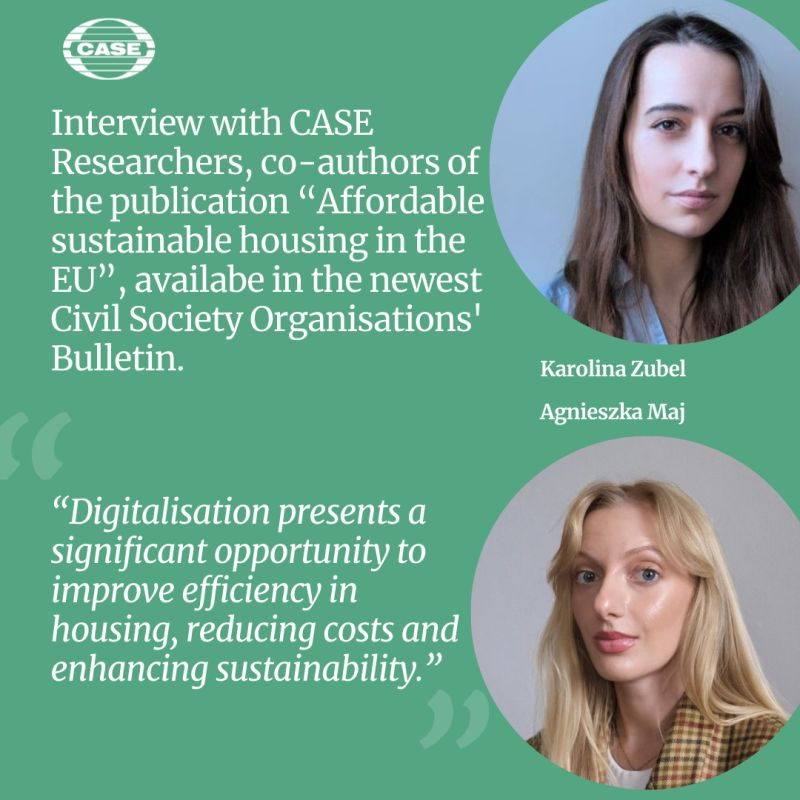The interview in Civil Society Organisations’ Bulletin with Agnieszka Maj and Karolina Zubel discusses their study on affordable and sustainable housing in the EU. They emphasize the role of digitalization—such as AI, digital building permits, and databases—in improving efficiency, though barriers like high costs, traditional stakeholder resistance, and lack of incentives limit its impact.
The co-authors highlight the importance of social economy entities, such as cooperatives and limited-profit housing associations, in providing cost-effective, stable housing solutions. They cite Vienna’s model, where non-profit housing accounts for 30% of production, helping to keep rents affordable.
In their recommendations, the authors call for an EU-wide “New European Deal for Affordable Sustainable Social Housing” and a “Housing Directive” to harmonize policies. They suggest expanding social housing to middle-income families, integrating digital tools, and focusing on both new construction and renovations. Looking ahead, they stress the need for research on AI’s role in cost savings, inclusive urban planning, and innovative housing models to enhance affordability and sustainability across the EU.
 Homepage CASE
Homepage CASE



